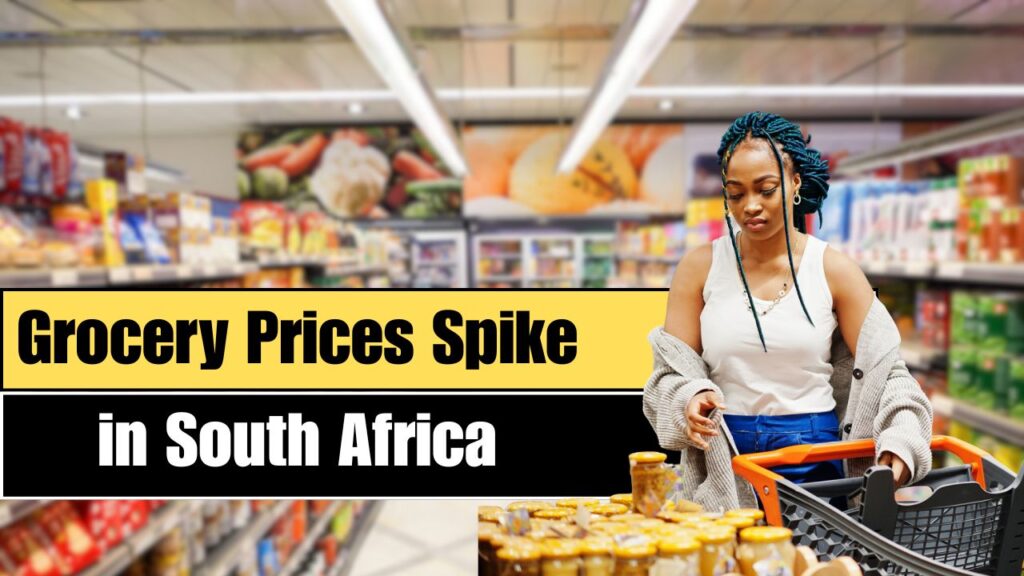South African households are facing a tough financial month ahead as food prices continue to rise sharply in October 2025. The cost of essential items like bread, cooking oil, and flour has surged, creating serious pressure on family budgets across the nation. According to the Consumer Price Index (CPI), food inflation has reached its highest level in a year, largely due to increased transport and import costs. Experts warn that unless global oil and wheat prices stabilize, consumers may see further price increases before the year ends.

Rising Bread Prices Across South Africa: Major Concerns for Consumers
The cost of bread in South Africa has risen significantly, with some areas reporting a 15% increase in just three months. Bakers and suppliers cite higher wheat import costs, fueled by global supply chain disruptions and fuel price hikes, as the main cause. For many low-income families, this price jump means cutting back on daily essentials. Economists have urged the government to monitor retail pricing closely to prevent unfair markups and ensure that staple foods remain affordable to ordinary citizens struggling amid economic uncertainty.
Cooking Oil Prices Hit Record Highs: Impact on SA Households
Cooking oil, a kitchen essential for nearly every South African household, has become a symbol of the country’s rising cost of living. Retailers have reported price surges of up to 20% in sunflower and canola oil since September 2025. This has affected both home cooks and small food businesses, which rely heavily on these oils for daily operations. Analysts suggest that the ongoing drought conditions in major producing regions, coupled with the weakening South African Rand, are contributing to this steep climb in prices.
Government Response and Relief Measures for Food Price Hikes
In response to the rising bread and oil prices, the South African government is considering expanding its food relief programs to support vulnerable families. Officials from the Department of Trade and Industry have begun talks with major retailers to stabilize prices through temporary subsidies. Additionally, community organizations and SASSA grant beneficiaries are being encouraged to apply for emergency food vouchers available in select provinces. While these measures provide some relief, long-term solutions are needed to tackle the root causes of food inflation across the nation.

How South Africans Can Manage Rising Food Costs Effectively
To cope with the growing financial strain, experts recommend that South Africans buy in bulk, compare store prices, and switch to more affordable alternatives where possible. Households are also advised to take advantage of retailer discounts, local markets, and government support programs. Additionally, promoting home gardening initiatives could help families supplement their food supply and reduce dependency on store-bought products. Managing expenses wisely and staying informed about price trends will be key for survival during these inflationary months.
| Essential Item | Average Price (Sep 2025) | Average Price (Oct 2025) | Percentage Increase |
|---|---|---|---|
| White Bread (700g) | R17.50 | R20.10 | +14.8% |
| Sunflower Oil (2L) | R69.90 | R83.50 | +19.5% |
| Maize Meal (10kg) | R110.00 | R125.00 | +13.6% |
| Cooking Flour (2.5kg) | R35.00 | R40.20 | +14.8% |
| Eggs (18 pack) | R55.00 | R61.00 | +10.9% |
FAQs
1. Why are food prices increasing in South Africa?
Food prices are rising due to higher transport costs, currency depreciation, and global supply chain issues.
2. Which food items have become most expensive recently?
Bread, cooking oil, and maize meal have seen the biggest price jumps in October 2025.
3. Is the South African government offering any food relief?
Yes, emergency food vouchers and subsidies are being discussed to help low-income families.
4. How can households manage rising grocery costs?
Families should buy in bulk, compare prices, use discounts, and explore home gardening options.





